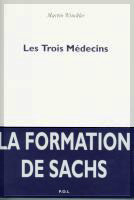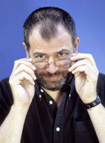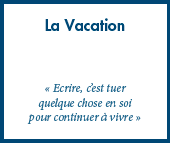|
|
|
For the English-speaking Reader
|
|
In this section, English-speaking readers will find papers and articles by Martin Winckler translated or originally written in English.
On doctoring and writing
Patient tells, Doctor reads, Writer shares
by Martin Winckler - 14 avril 2021
This is the text of a lecture given in English in Amsterdam (The Netherlands), in 2008.
I translated it from the French language with the welcome editorial help of Randee Dawn Cohen, a fine, New York-based fellow writer.
******
I am often asked how a doctor gets to write fiction. Isn’t being a writer a completely different profession than being a caregiver ? Isn’t there any confidentiality problem involved with writing people’s stories ? How close to reality are my books ?
These questions are deceptively simple, and there is no easy answer. One doesn’t just start writing out of the blue. I have been writing for many years. I started writing when I was a child, long before I became a doctor, and have continued writing throughout the years. I was also a compulsive reader, then. Very early on, I made up stories based on the stories I had read. Some of them impressed me more than others. Usually, they had to do with love and death and time travel. Don’t all the stories that patient tell have something to do with those same topics ? (Yes, patients do speak about time travel... Their mind is a time machine.) 
|
|
|
|
Self portrait
by Marc Zaffran/Martin Winckler - 29 avril 2007
On April 20-22, I attended a Narrative Medicine Workshop at the Presbyterian Hospital, Columbia University, New York City (NY). This was the first time in my life I attended a writing workshop and probably the first time that, as an Adult, I wrote so much in English in such a short time. (I also wrote a lot in English when I was a foreign exchange student in Minnesota, in 1972).
Most of what I wrote during those three days will remain confidential, as we agreed not to discuss it outside the workshop because it often involved things our patients or our colleagues had told us. But at one point, one of the speakers showed us a picture. And that picture made us react very strongly. It is an apparently well-known, Pulitzer-Prize winning picture taken by Kevin Carter in Darfur in 1994. After she had shown us that picture, the speaker asked us to write something - anything that got into our mind while we were watching it. Here is the picture, followed by what I wrote.
I dedicate it to the whole group. (With special thanks to Sayantani DasGupta !)
Marc

|
|
|
|
American television, French screens
By Martin Winckler, as translated by Wendy Kristianasen - 26 avril 2007
The only television shows from the United States that you could get to see in France in the 1970s were westerns, crime stories and a few comedies. French state-owned television, knowingly or not, avoided the most critical, politically engaged shows, particularly the medical and legal dramas. With the multiplication of channels in the 1980s, many more US shows began to appear on French screens, but even so, until 2000 US shows were usually regarded as unimaginative and politically correct. 
|
|
|
|
"The Lecture"
an extract from Martin Winckler’s "Les Trois Médecins", translated by Dougal Jeffries - 1er novembre 2005
Introduction by Dougal Jeffries
I first came across the work of Martin Winckler about six years ago, intrigued enough by a book review to get hold of a copy of Winckler’s best-selling novel, ‘La Maladie de Sachs’. The novel proved an unexpected best-seller, was chosen by readers for the Prix du Livre Inter, has sold 600,000 copies in France alone, was made into an acclaimed film, and has been translated into several languages, including English [1]. Read a review of ’The Case of Dr Sachs’ by physician-writer John L. Coulehan
The novel is recommended reading in many European medical schools and in the American medical community, yet has not the success in the UK that it richly deserves. This is something of a puzzle, since the portrait that it paints of a compassionate, complex, and committed rural general practitioner is one that we can easily recognize and sympathise with, and one that owes an explicit debt to the ideals of the Balint school so beloved of educators in British general practice. 
|

|
|
|
Know why we suffer, know why we get better
by Martin Winckler - translated in English par Christophe Thill - 9 octobre 2005
This article is an answer to a message from a reader (see the message + answer in French), herself replying to an article about how homeopathy actually works through placebo effect, while its claimed principles are not valid. The reader tells how her homeopath physician always carefully listened to her, and how her two daughters were cured by homeopathic remedies. She opines that an 18-months old little girl couldn’t have been healed by the placebo effect or the intervention of the Holy Virgin. 
|
|
|
|
Professional aristocracy of medicine
France : Uncaring Carers (27.02.04)
by Martin Winckler, in a translation by Paul Jones. - 27 février 2004
This is a very fine translation by Paul Jones of "Medecins sous influence", a paper originally published in French language in Le Monde Diplomatique.
France ?s celebrated healthcare system is based on an outmoded elite of doctors, educated and trained to serve their own egos and bank balances rather than the real needs of patients. 
|
|
|
|
In Memory of Betty Ann Hanson (1930-2003)
Betty Hanson, my American Mom
A chapter of "Légendes" (POL, Paris, 2002) translated by Amy Daniels. - 7 octobre 2003
In 1972-1973, when I was 18, I spent a year as an AFS exchange student in Bloomington, Minnesota, with an American family. The Stainers (Charlie and Betty were the parents ; Chuck, Juno and Jimmy, their three children) adopted me and I dare say that year I spent with them changed my life forever. I have written an extensive account of that year in one of my latest books, Légendes (POL, 2002), which was also the first book I pre-published as a serial on the Internet site of the publisher. Following is a chapter of that book. 
|
|
|
|
Chronique d’une année en Amérique
Living in Minnesota
A translation by Amy Daniels of the third part of "Légendes" (POL, 2002) - 21 septembre 2003
Légendes (POL, 2003) is a remembrance of how fiction accompanied me through childhood and helped me grow into adulthood. The last third of the book tells about my year as an exchange student in Bloomington, Minnesota.
There, I lived with a host family, the Stainers, and attended the neighborhood Senior High School, Lincoln High...
Légendes hasn’t been published in English, but these chapters were translated by Amy Daniels, a student in French Literature currently at... the University of Minnesota. My gratitude to her and to Gayle Levy, a French Literature teacher in Kansas City, MO, who connected me with Amy. 
|
|
|
|
Another impressive TV Drama
Hail to the (fictional) chief
By Martin Winckler, Translated by Luke Sandford - 23 août 2003
YOU couldn’t imagine a television series about the president of the Republic and his advisers, showing both daily life at the Elysée palace and political mysteries. There are fictionalised accounts of the French presidency in a few detective stories (including Valérie Duchâteau’s Meurtre à l’Élysée) and tongue-in-cheek political novels, which tend to be superficial even when their pseudonymous authors had been in politics. A handful of plays and films (Georges Folgoas’s Reviens dormir à l’Élysée, and Francis Girod and Françoise Giroud’s Le Bon Plaisir) touch the surface of the way that presidential image-making works. 
|
|
|
|
Uncommonly Rare Television
Jailhouse Rocks
by Martin Winckler, translation : Luke Sandford - 10 août 2003
Television is more than cultural junk food for the masses ; it can provide a platform for talented artists and creative visionaries. The American series "Oz" is a shining example. 
|
|
|
|
|
|
|



